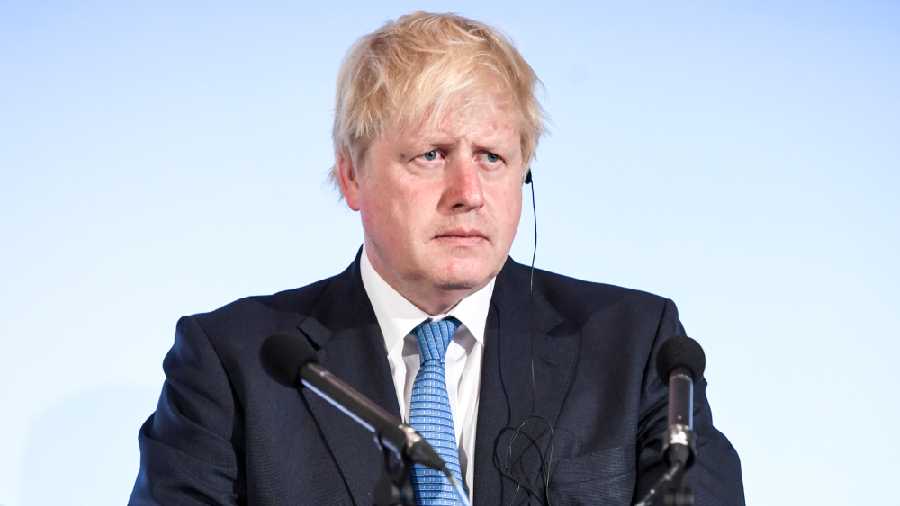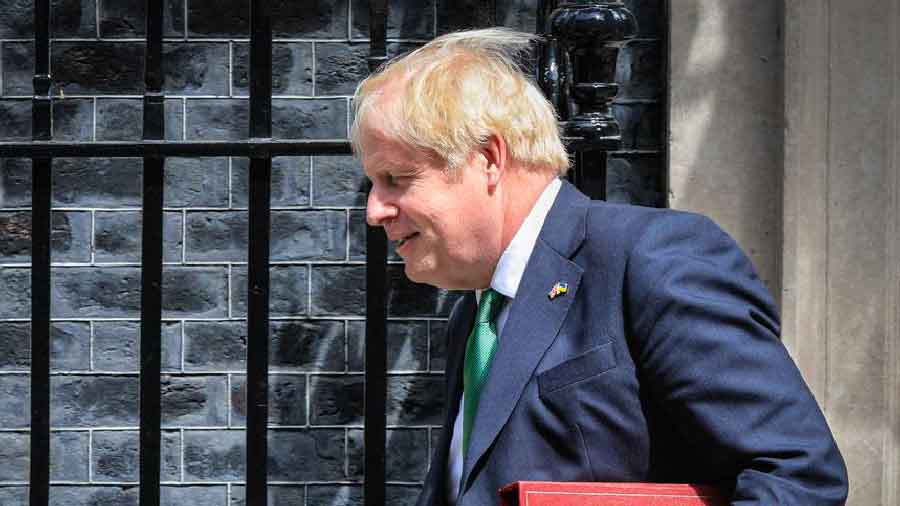A UK cross-party panel investigating whether former British Prime Minister Boris Johnson misled Parliament over the partygate scandal of lockdown law-breaching parties during his time at 10 Downing Street declared on Monday that its probe will continue.
The House of Commons Privileges Committee hit back at a government-hired lawyer's intervention into the inquiry to brand it as unfair and flawed and rejected all criticisms after receiving clear, impartial and unambiguous advice from its own legal advisers.
Lord David Pannick, a lawyer hired by the government earlier to examine the committee's approach, had accused the committee of proposing to apply an unfair procedure and proposing to adopt a fundamentally flawed approach .
The committee accepts the view of its impartial legal advisers and the Clerks that Lord Pannick's opinion is founded on a systemic misunderstanding of the parliamentary process and misplaced analogies with the criminal law, the Privileges Committee said in a statement.
Pannick had criticised the committee for taking evidence anonymously and claimed Johnson should be given the details of the case against him.
The report also rejects Lord Pannick's argument in relation to the issue of Mr Johnson's intentions, and that the committee's interpretation of intent will have a chilling effect on ministerial comments in the House noting that the latter concern is wholly misplaced and itself misleading', the committee said.
The Privileges Committee is investigating whether Johnson misled the Commons by telling the House that pandemic rules had been followed during lockdown events at 10 Downing that since resulted in COVID fines being issued by Scotland Yard.
In the course of its inquiry, the committee could call on Johnson to account for what he previously told members of Parliament.
Johnson, now a backbench MP since he resigned as the Prime Minister in early July in the wake of the partygate and other scandals rocking his premiership, could be suspended from Parliament or even lose his MP's seat if the committee rules against him.
He has previously issued apologies in the Commons and also denied deliberately misleading Parliament.











